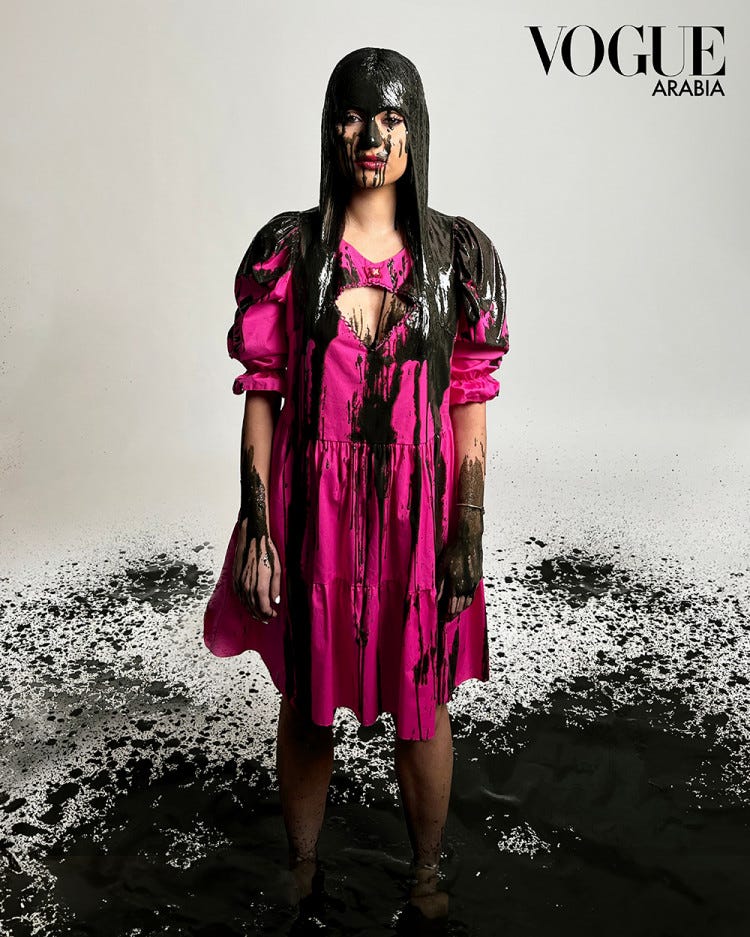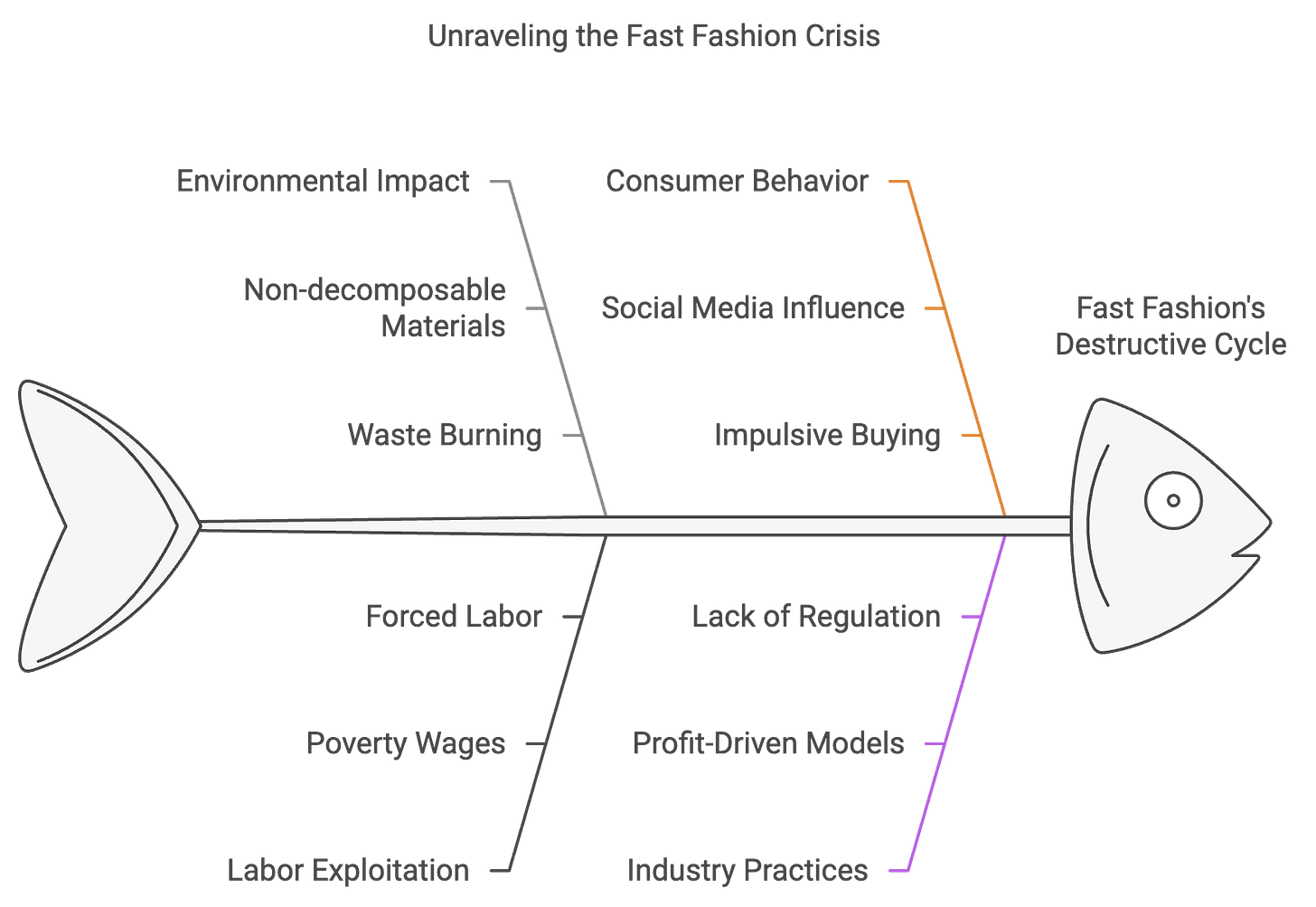As a young person, it’s impossible to ignore how fast fashion has become a defining feature of our time. Brands like H&M, Forever 21, and the ultra-fast player Shein have have hooked us on a constant flow of cheap, disposable clothing. This isn’t just bad taste—it’s a crisis.
The majority of these clothes are made from polyester and other synthetic materials. Let’s be clear: that’s just another word for oil and gas.
We are literally wearing fossil fuels.
Shein alone may be selling around 3 million pieces of clothing every single day. That’s not just an alarming figure—it’s a symptom of a culture of overconsumption.
And where do these clothes end up?
In Ghana’s Kantamanto Market, around 15 million pieces of discarded garments flood in every week (The OR Foundation).
Because these garments are derived from oil and gas, they don’t decompose. Instead, in places where wood and other biomass are increasingly scarce, people are forced to burn these synthetic clothes just to cook a meal, inhaling toxic fumes. This is the grim reality we’ve created by treating fashion as disposable.
Imagine breathing in toxic fumes from your old T-shirts.
Today’s fast fashion business model relies on a workforce trapped in poverty wages, pushed into a cycle of exploitation that can include bonded labor, forced labor, and human trafficking. Even those who show up willingly to sew our clothes often have no other choice, caught in an unending loop of economic desperation.
The global fashion industry makes over $2.5 trillion a year, yet it thrives on these unjust conditions.
As The Circle NGO points out, the readymade garment industry stands as the poster child for exploitation, sourcing goods from factories where wages and working conditions would be illegal in the countries where these clothes are primarily sold.
As the public catches on, brands are scrambling to look “sustainable.” Don’t be fooled. Most “eco-friendly” lines are just PR stunts. They don’t change the fact that we’re still wearing oil and propping up a system that hurts workers and the planet.
The fashion industry thrives on this exploitation.
Enough is enough.
Regulation is long overdue. We need governments to step in and enforce labor laws, environmental protections, and living wages. We need brands to stop lying, stop greenwashing, and place people and the planet over profit.
We, as individuals—especially young people—must also recognize our power. On TikTok, the hashtag #SheinHaul has over 6.8 billion views, showing just how much we feed this system. But this also means we have the ability to turn off the tap at any moment. We can refuse to be complicit in this destructive pattern.
It’s up to us to demand better. It’s up to us to slow down, buy less, and think more critically about who made our clothes and what they’re made from.
There’s a tiny margin between ignorance and indifference, and between indifference and complicity.
I don’t want to be an accomplice any longer, and nor should any of you.








OBSESSED
This this this